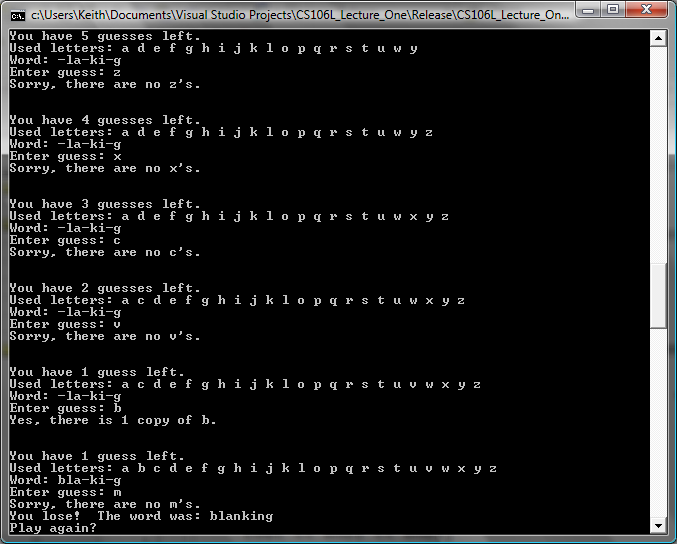Programming
Hello, this time I'll talk about programming. Those who studies math here had a full year of object-oriented programming with C++. I liked it a lot and took a module "Data structures" where we program in JAVA. Now I can choose on an assignment from various sources and I'm thinking of doing Evil Hangman.Evil Hangman
Evil Hangman is an assignment in which students write a computer program that cheats at the classic game Hangman. Normally, when writing a computer to play Hangman, the computer picks a single word and accurately represents it as the human player tries to guess all of the letters in the word. In Evil Hangman, the computer instead maintains a list of every word in the English language, then continuously pares down the word list to try to dodge the player's guesses as much as possible. Human players tend to fare terribly against this conniving silicon foe!
I've already made a little program that fetched up all Lithuanian words from a website and I believe that if I do it right, this can be unbeatable. Especially since there are some Lithuanian words that are really tough to guess.
Tips
Since I'm not that much experienced at programming I'll appreciate all tips that might aid me at this assignment. Maybe someone has done this. Feedback in the comments would be great.

